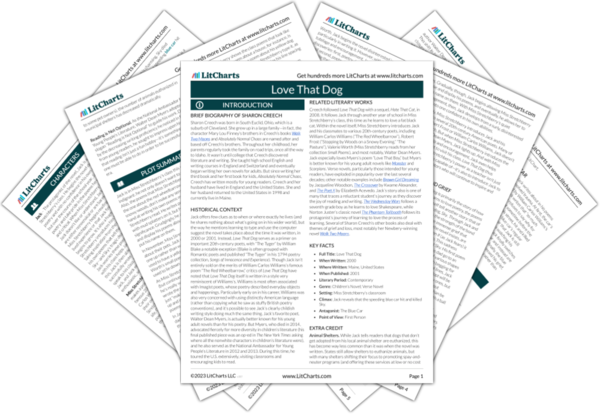Here, Jack makes a breakthrough and starts to think more critically about what makes a poem—and what makes a poem good. A poem, as Jack suggests here, can simply be a way of conveying a mood or a picture, as Frost does as he describes a winter wood or a pasture, and as Williams describes a wheelbarrow. Frost and Williams, incidentally, did set out intentionally to be poets, unlike Jack. But still, Jack recognizes that by following some standard poetry conventions (like using line breaks), he, too, can play at writing poetry. Finally, Jack’s poems seem to be pretty popular among his classmates, which seemingly makes Jack begin to wonder whether he should start putting his name on them.


